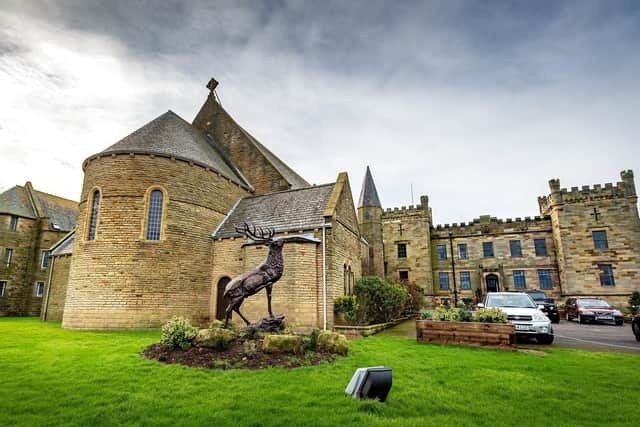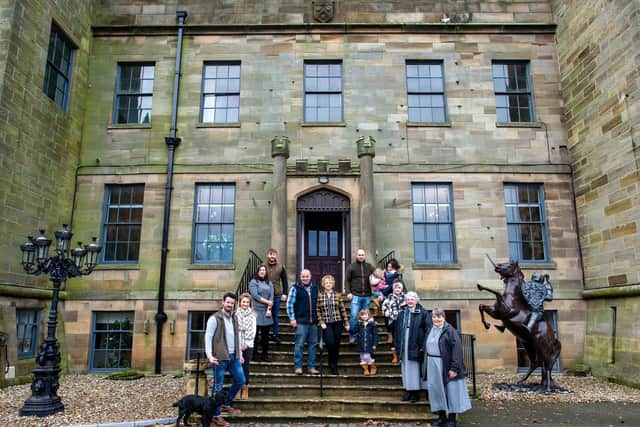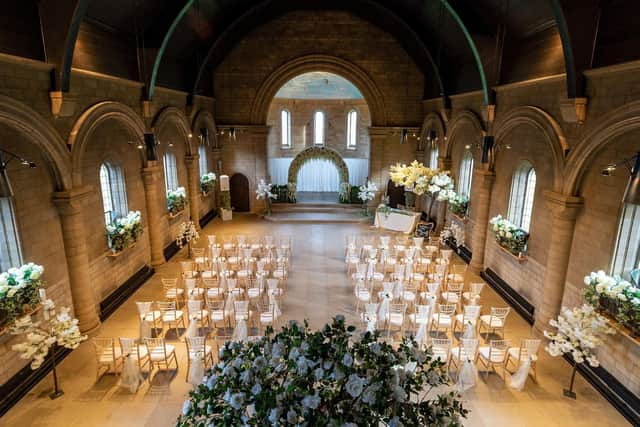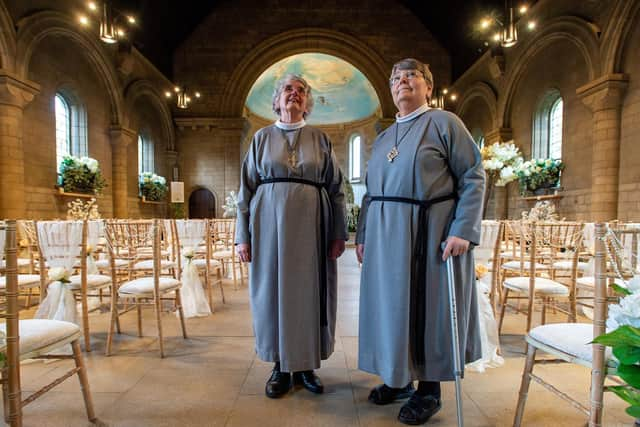How a Whitby farming family who lost their livelihood to foot and mouth disease bounced back with a glamping site and a castle
In April 2001, foot and mouth disease was discovered near Cross Butts at Whitby, and their herd of 280 pedigree dairy cattle was forcefully culled by the army as a precautionary measure.
John Morley, who had worked with livestock all his life and inherited the land from his father, was in such despair that he threw an Environment Agency worker's camera into a slurry pit and was later told by his GP that he was 'heartbroken' by the loss he had suffered.
Advertisement
Hide AdAdvertisement
Hide AdThe family - who had three young children at the time - were in deep shock, and though John attempted to carry on with new stock, he knew his heart was no longer in it and he and his neighbour made the decision to sell their herds at market in Carlisle several years later.


He then realised that the solution to their seemingly poor financial prospects had been there all along - his wife Sue's burgeoning bed and breakfast business.
The Morleys were among the first to realise that Whitby's tourism industry could be extended from the traditional summer season to encompass the whole year. Their next project was converting a former stable block on the farm into a restaurant, and by the 10th anniversary of the foot and mouth crisis their dining and weddings business was thriving.
Twenty years on, a different pandemic has thrown many futures into doubt again, yet 2020 saw three major developments at Cross Butts which have filled John, Sue, their son Daniel and daughters Gemma and Cheryl - all of whom work with their parents - with hope. If they had stuck with traditional farming, employing all three children would have been untenable.
Advertisement
Hide AdAdvertisement
Hide AdThe Stables has been sold to upmarket pub brand The Inn Collection, who have taken over the running of the restaurant after making an offer the Morleys could not refuse.


A planning application for guest lodges and a glamping site has been approved, and a secluded piece of land at the bottom of the farm's valley will open to visitors in the summer if all goes well.
And two years ago, an opportunity fell into the Morleys' laps thanks to their long-time neighbours and friends - an order of nuns called the Sisters of the Holy Paraclete.
The Sisters owned Sneaton Castle, a Georgian property originally built by a Caribbean sugar plantation owner, James Wilson, when he retired to Whitby. The nuns moved into adjacent St Hilda's Priory in 1915, and the castle was run as a girls' boarding school that closed only shortly before foot and mouth hit. It then became a retreat, but the increasingly elderly community of nuns, whose numbers have dwindled to around 25, decided to sell up in 2018, realising the castle was making a loss.
Advertisement
Hide AdAdvertisement
Hide AdThey have moved to a new priory on another part of the estate, and originally marketed Sneaton with an agent. Yet they feared offers from developers wishing to turn the castle into apartments.


The Prioress approached John, asking if his family would consider buying the castle and preserving its historic character. In 2021, it will open as a wedding and conference venue.
"The Sisters lost their cattle in the foot and mouth crisis too, and we helped them out back then. They asked us if we wanted to buy the castle because they wanted it to retain its character. We were over the moon - we've been awe of it all our lives, and it seemed a natural progression for the business.
"It's tailor made for weddings and we want it to keep that rural style - we won't sell its soul. There's a fantastic Norman chapel, and we are licensed for civil ceremonies too."
Advertisement
Hide AdAdvertisement
Hide AdDespite having to delay opening the castle in 2020, 100 couples have kept their wedding bookings, and the Morleys are flexible, offering smaller ceremonies with the option of a larger reception at a later date. The meeting rooms have been booked daily, for organisations including the NHS and the nearby potash mine, and key workers have been given accommodation with views of Whitby Abbey.


The family have achieved recovery and stability without having to sell any of their land.
"When foot and mouth came, it was a massive shock. I lost my entire career and I had an empty farm - I couldn't handle it. If you think back to 20 years ago and what happened to farmers, it was hard for everyone.
"Quite a few around here have diversified - although that's not a word I like, as I think the industry should have been looked after better. But we are lucky in our location and we saw opportunities. We found our way around it.
Advertisement
Hide AdAdvertisement
Hide Ad"After Covid, I know we can start again with a bit of thought, because back then we had nothing left. We borrowed heavily, gave the asset value of the farm to the banks. We had to make it work because there was no other way,"
Comment Guidelines
National World encourages reader discussion on our stories. User feedback, insights and back-and-forth exchanges add a rich layer of context to reporting. Please review our Community Guidelines before commenting.